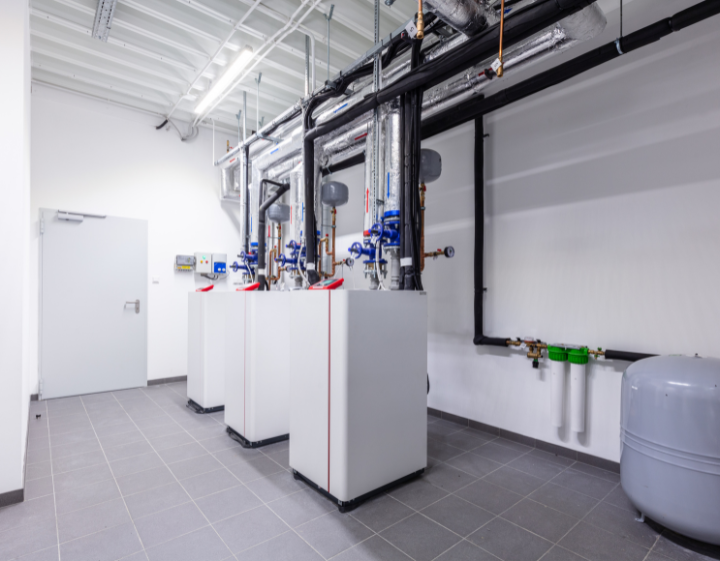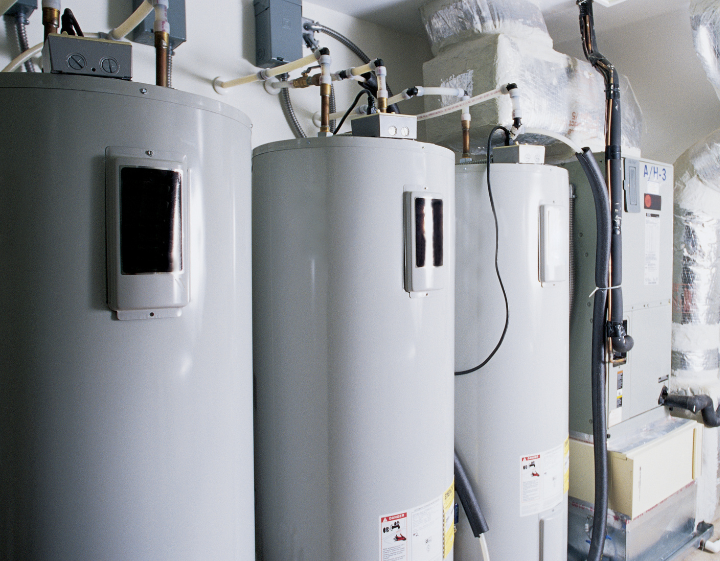Introduction
A reliable and efficient water heating system is essential for businesses of all types. Whether you run a restaurant, hotel, office building, or manufacturing facility, having a dependable source of hot water is crucial for daily operations. From washing dishes and maintaining cleanliness to providing hot showers and ensuring employee comfort, hot water is a vital resource that directly impacts the smooth functioning and overall success of a business.
Choosing the right commercial water heater is not just about finding a cost-effective solution. It is about considering various factors that contribute to its performance, including energy efficiency, operational costs, and sustainability. A properly designed and sized water heating system can significantly reduce energy consumption, resulting in lower utility bills. By selecting an energy-efficient model, business owners can also contribute to environmental sustainability by reducing their carbon footprint and conserving natural resources. Furthermore, an efficient water heater ensures that hot water is readily available, minimizing downtime due to equipment failures or inadequate capacity. This improves productivity and customer satisfaction, as it allows businesses to deliver consistent services without interruptions.
In this guide, we will explore the critical factors that business owners need to consider when selecting a commercial water heater. By carefully evaluating these aspects, businesses can optimize their investment and choose a water heating system that meets their specific needs and objectives.
Understanding Your Water Heating Needs
One of the first steps in selecting the best commercial water heater for your business is to assess your hot water demand. It is crucial to have a clear understanding of your business’s hot water usage patterns and peak demand. By evaluating your water heating needs, you can determine the capacity and type of water heater that will best meet your requirements. For instance, restaurants typically have a high hot water demand during peak hours, such as meal preparation and dishwashing, requiring a water heater with a rapid recovery rate to ensure a continuous supply of hot water. On the other hand, apartment complexes may prioritize consistent hot water delivery to meet the needs of multiple units simultaneously. Additionally, understanding your water heating needs can help you choose the appropriate fuel type for your commercial water heater. Whether it’s natural gas, propane, electricity, or solar power, selecting the most efficient and cost-effective option for your business’s hot water demand will optimize your investment.
Taking the time to assess your hot water demand and understanding your business’s specific water heating needs is essential in selecting the best commercial water heater. This consideration will ensure that you choose a water heater that can meet your requirements efficiently and effectively, ultimately maximizing your investment and providing a consistent supply of hot water for your business operations.
Types of Commercial Water Heaters
1. Conventional Storage Water Heaters:
Conventional storage water heaters are the most common type and are easily recognizable by their large storage tank. They work by constantly heating and storing a specific volume of water in the tank, ready for use whenever needed. The capacity of these water heaters typically ranges from 20 to 120 gallons, making them suitable for businesses with moderate to high hot water demands. They are ideal for applications where there is a consistent need for a large volume of hot water, such as hotels, restaurants, and industrial facilities.
2. Tankless Water Heaters:
Tankless water heaters provide hot water on demand without the need for a storage tank. They are compact and space-saving, making them suitable for businesses with limited space availability. These water heaters use high-powered burners or electric coils to heat the water instantly as it flows through the unit. They are highly energy-efficient as they only heat water when needed, eliminating standby heat loss. However, their flow rate is limited, making them more suitable for applications with lower hot water demands, such as small offices or retail establishments.
3. Hybrid Water Heaters:
Hybrid water heaters combine the technology of conventional storage water heaters and tankless water heaters. They utilize a heat pump to extract heat from the surrounding air and use it to heat water stored in a tank. This technology makes them highly energy-efficient, as they require less electricity to heat water compared to traditional models. Hybrid water heaters are best suited for businesses looking to reduce energy consumption and operating costs without compromising on the hot water supply.
4. High-Efficiency Water Heaters:
High-efficiency water heaters, including both conventional and tankless models, are designed to maximize energy savings. They feature enhanced insulation, improved heat exchangers, and advanced control systems to minimize energy waste. By opting for high-efficiency water heaters, businesses can significantly reduce their energy consumption and lower utility bills over time. These water heaters are suitable for all types of businesses, particularly those with high hot water demands and a focus on sustainability.
When selecting a commercial water heater, it is crucial to consider factors such as hot water demand, space availability, energy efficiency, and long-term cost savings. By understanding the different types of commercial water heaters and their unique features, business owners can make an informed decision that aligns with their specific requirements.
Key Factors to Consider
When selecting a commercial water heater, it is essential to consider several key factors to ensure the best investment for your business. These factors include energy efficiency, size and capacity, fuel type, and durability and maintenance.
Energy efficiency is crucial as it directly affects operational costs. Look for water heaters with high energy efficiency ratings, such as ENERGY STAR certified models. These units not only save money but also have a lower environmental impact. Choosing the right size and capacity is vital to meet your business’s needs without wasting energy. Consider factors such as peak demand, hot water usage patterns, and the number of fixtures and appliances that require hot water. Installing an oversized or undersized water heater can result in excessive energy consumption or insufficient hot water supply. Evaluate different fuel types, such as gas, electric, or solar. Compare their availability, cost, and environmental impact. Gas water heaters are typically more cost-effective but require access to natural gas or propane. Electric water heaters are widely available but may have higher energy costs. Solar water heaters are environmentally friendly but may have higher upfront costs. Durability and maintenance are also critical considerations. Look for water heaters with a robust construction quality and reliable warranty offerings. Additionally, consider the expected maintenance needs of different models, including regular inspections, cleaning, and potential repairs.
By carefully considering these key factors, business owners can ensure they select the best commercial water heater that optimizes energy efficiency, meets hot water demands, and offers durability and minimal maintenance requirements.
Installation and Servicing
Professional installation is crucial when it comes to selecting the best commercial water heater. This is because improper installation can lead to safety hazards, decreased efficiency, and even regulatory non-compliance. Hiring a professional ensures that the water heater is installed correctly, with all necessary safety measures in place. Additionally, ongoing maintenance is essential for the long-term performance of the water heater. Regular servicing by a qualified technician helps extend the life of the unit and maintain its efficiency. This includes cleaning and flushing the tank, inspecting and replacing any faulty components, and checking for leaks or other issues. By investing in professional installation and ongoing maintenance, business owners can not only ensure the safety of their employees and customers but also optimize the performance of their commercial water heater. Regular servicing helps identify potential problems before they escalate, saving both time and money in the long run. It also ensures compliance with local codes and regulations, avoiding any unnecessary penalties or fines. Therefore, business owners should prioritize professional installation and regular servicing to maximize the benefits of their commercial water heater investment.
Choosing the Right Vendor or Supplier
When selecting the best commercial water heater, choosing the right vendor or supplier is crucial for ensuring a successful investment. To make an informed decision, it is essential to research the reputation and reviews of potential vendors. By doing so, business owners can gather insights from other customers and determine the vendor’s reliability and quality of products.
Apart from reputation and reviews, another critical factor to consider is the level of support and service offered by the vendor. A reliable supplier will provide strong customer support, assisting with installation, maintenance, and addressing any issues that may arise. This is particularly important for commercial water heaters, as they require professional installation and regular servicing to operate optimally. By selecting a vendor that offers excellent customer support and servicing capabilities, business owners can expect a smooth purchasing experience and reliable after-sales service. This ensures that any problems or concerns with the commercial water heater can be addressed promptly and efficiently, minimizing downtime and maximizing its performance.
Choosing the right vendor or supplier is essential when selecting a commercial water heater. By considering reputation, customer reviews, and the level of support and service provided, business owners can make a well-informed decision and optimize their investment in the long run.
Conclusion
Choosing the right commercial water heater is crucial for business owners in order to optimize their investment, minimize costs, and reduce their environmental footprint. By considering key factors such as the type of heater, capacity, efficiency, and maintenance requirements, business owners can ensure that they select a water heater that meets their specific needs.
The right choice of a commercial water heater can have a significant impact on business operations. A reliable and efficient water heater ensures a steady supply of hot water, which is essential for various business activities, such as cooking, cleaning, and providing hot water to customers. This promotes customer satisfaction and helps maintain a smooth workflow, ultimately resulting in improved productivity and profitability. Another important aspect to consider is the cost implications. By selecting a water heater with high efficiency and a proper capacity, business owners can save on energy costs and reduce water wastage. This not only contributes to substantial cost savings over time but also aligns with sustainability goals and reduces the business’s overall environmental footprint.
In summary, investing time and effort into selecting the right commercial water heater is a wise decision for business owners. The right choice not only ensures optimal operations and cost savings but also supports environmental sustainability, thus creating a win-win situation for the business and the environment.







